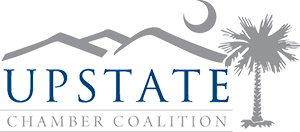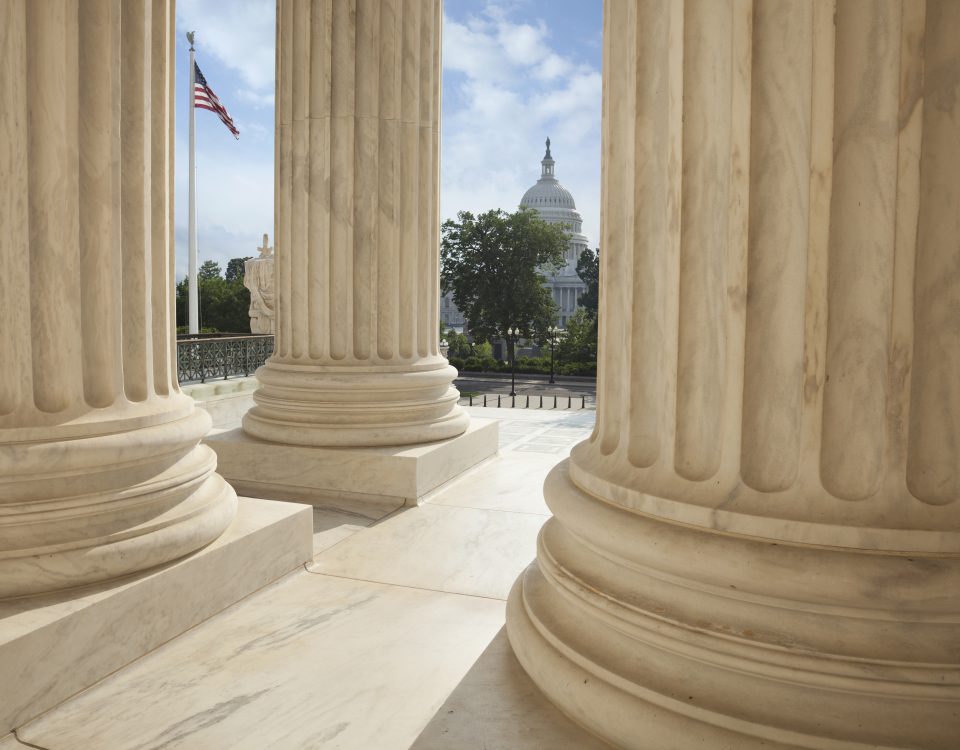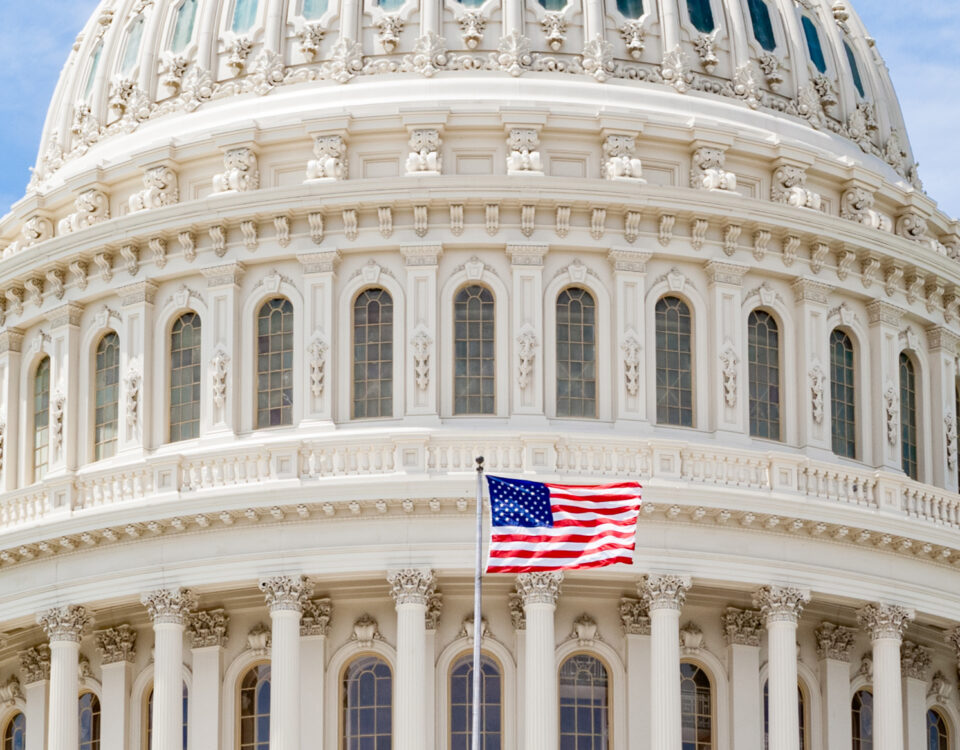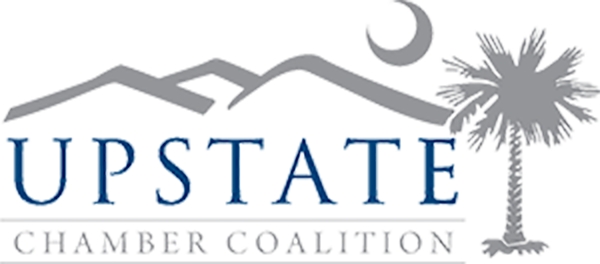
UCC Issues Statement on Hate Crimes Bill
March 8, 2021
Legislature 101: What is “Crossover”?
March 26, 2021COVID Legislation Update 3.11.21
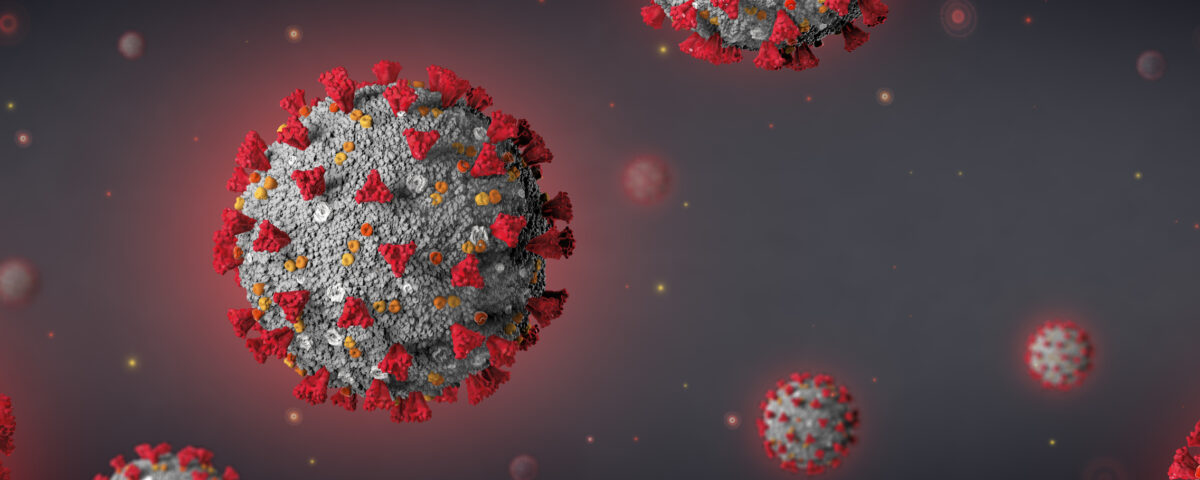
We are keeping a running list of the status if major COVID-related pieces of legislation. There are several moving through the state General Assembly and Congress. Here is a quick run-down of the major pieces currently in the news.
Federal Stimulus Bill
Congress has officially passed President Biden’s $1.9 trillion stimulus package. President Biden will sign the bill Friday afternoon (March 12, 2021).
- Economic Impact Payments: Direct Payments up to $1,400 per person. As in the past, individuals earning less than $75,000 per year and married couples earning less than $150,000 would be sent the full amount. The Senate bill will likely see a faster phase out for those making over that cap, with payments completely cut off for individuals making over $80,000 and families making over $160,000. Adult dependents would be eligible for the payments. Families would also receive an additional $1,400 per child.
- Unemployment Assistance: Pandemic Unemployment Assistance (freelancers, gig workers, independent contractors etc.) and Pandemic Emergency Employment Compensation (standard state unemployment) would be extended through September 6. A federal boost of $300 per week will continue through this date as well. The legislation also makes the first $10,200 of benefit payments become tax-free for households with annual incomes with less than $150,000.
- Nutrition Assistance: The existing increase of 15% to food stamp benefits continues through September. The bill also contains $880 million for WIC benefits, and continues the Pandemic-EBT program- both which offer special assistance to women, infants and school aged children.
- Housing Aid: The relief package sends around $20 billion to state and local governments to assist with back rent, rent assistance and utility bills for low income households. It also allocates $10 million to help struggling homeowners with mortgages, utilities and property taxes. Finally, the relief package provides $5 billion to help states and cities assist those at risk of experience homelessness and $5 billion towards emergency housing vouchers for those that are homeless.
- Tax credits: The bill would expand the child tax credit to $3,600 for children under 6 and $3,000 for children under the age of 18. The credits become fully refundable, and families can opt to take these payments monthly. The bill also enhances the earned income tax credit for workers without children. The bill also continues tax credits to businesses who continue to offer paid sick and family leave to those workers who contact COVID, are quarantining or staying home while their children’s schools were closed.
- Education and Childcare: A total of over $200 billion will be allocated towards education and childcare.
- $125 billion is headed to public K-12 schools, and $2.75 billion to private schools, to help students return to the classroom. The money should be used for updates to ventilation systems, reducing class sizes to encourage social distancing, the purchase of PPE, and the hiring of support staff. Acceptance of the funds would require that schools use at least 20 percent of the money to address learning loss.
- $40 billion would be allocated to colleges with institutions being required to spend at least half the money to provide emergency financial aid grants to students, while the remainder can be used to help mitigate the damage from lost revenue and increased expenses.
- Finally, $39 billion would be allocated to childcare providers, with the amount to be based on operating expenses.
- State Aid: The legislation provides $350 billion to states, local governments, territories and tribes. States and D.C. split about $195 billion, while counties and cities will spit around $130 billion.
- Vaccines & Testing: The bill provides $14 billion dollars for vaccines, $46 billion for testing, contract tracing and mitigation and $7.7 billion to hire 100,000 public health workers to support coronavirus response. The relief package provides $50 million to the Federal Emergency Management Agency, with some of the fuds going towards vaccination efforts. The bill also includes $8.5 billion to help rural hospital and health care providers.
- Small Business Aid: The EIDL program received an additional $15 million in funding, and small businesses with less than 10 employees will be given priority for some of the money. The PPP initiative received an additional $7 billion, and expansion of the terms allows more non-profit organizations to take advantage of the program. Finally, $25 billion was set aside to create a new grant program, specifically designed to offer relief to bars & restaurants.
State COVID Liability – S. 147
Last week, the South Carolina Senate passed the COVID Liability bill, S. 147. The passage included a few key amendments:
- Changes the bill from a safe harbor to immunity
- Changes it back to reckless or intentional conduct as opposed to “gross negligence” by the Judiciary Committee; and
- Changes the evidentiary standard back to a “clear and convincing” standard for most businesses.
The bill now moves to the House where we hope it will move quickly. Please contact your House member here.
State Vaccine Bill – H. 3707
H. 3707 was signed into law on February 19th. This bill allocates $208 million to allow spending on “eligible costs of administering the COVID-19 vaccine include, but are not limited to, those vaccination costs associated with staffing, security, traffic control, storage, transportation, mobile health units including the purchase, upfitting, staffing and operations thereof, and technology that have not been reimbursed by an insurer’s administration fee.” The $208 million will be dispersed as follows:
- $63 million to the state’s Department of Health and Environmental Control (DHEC),
- $45 million to the Medical University of South Carolina, and
- $100 million to the state vaccine reserve fund
- $75 million will go to hospitals and similar organizations and
- $25 million for other vaccine providers.
The bill would also allow for other healthcare providers to administer the vaccine, with proper training, and directs DHEC to divide available vaccines among four regions in the state.
